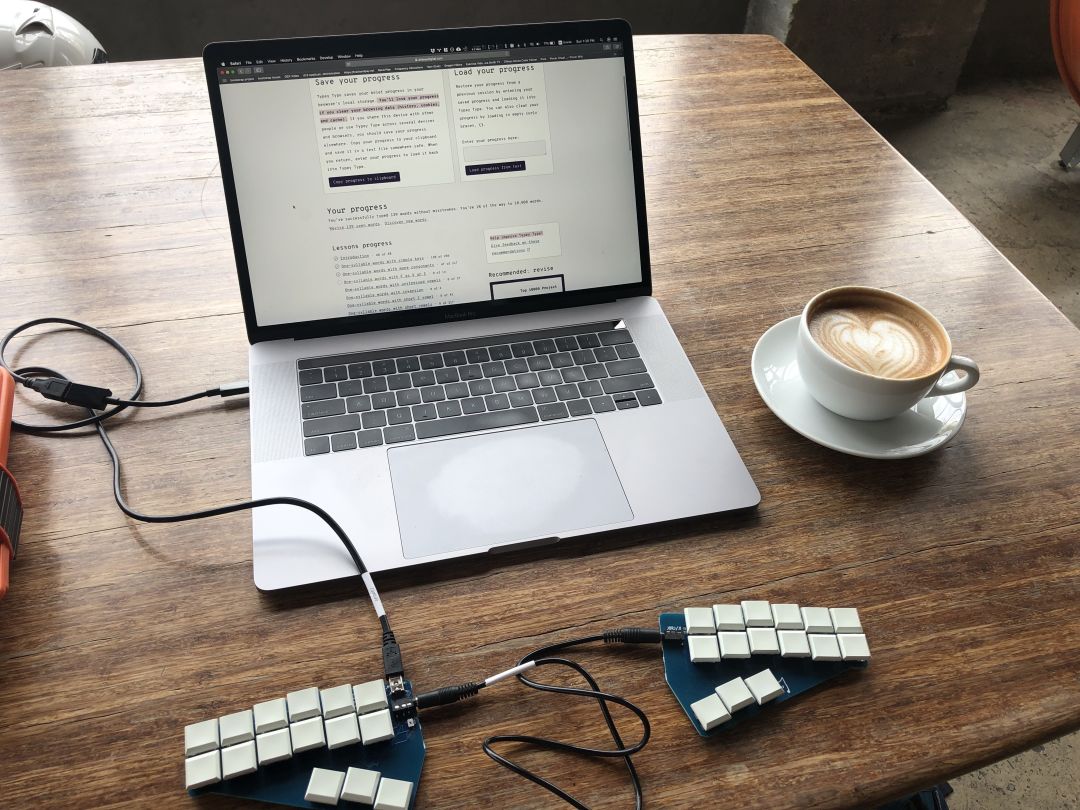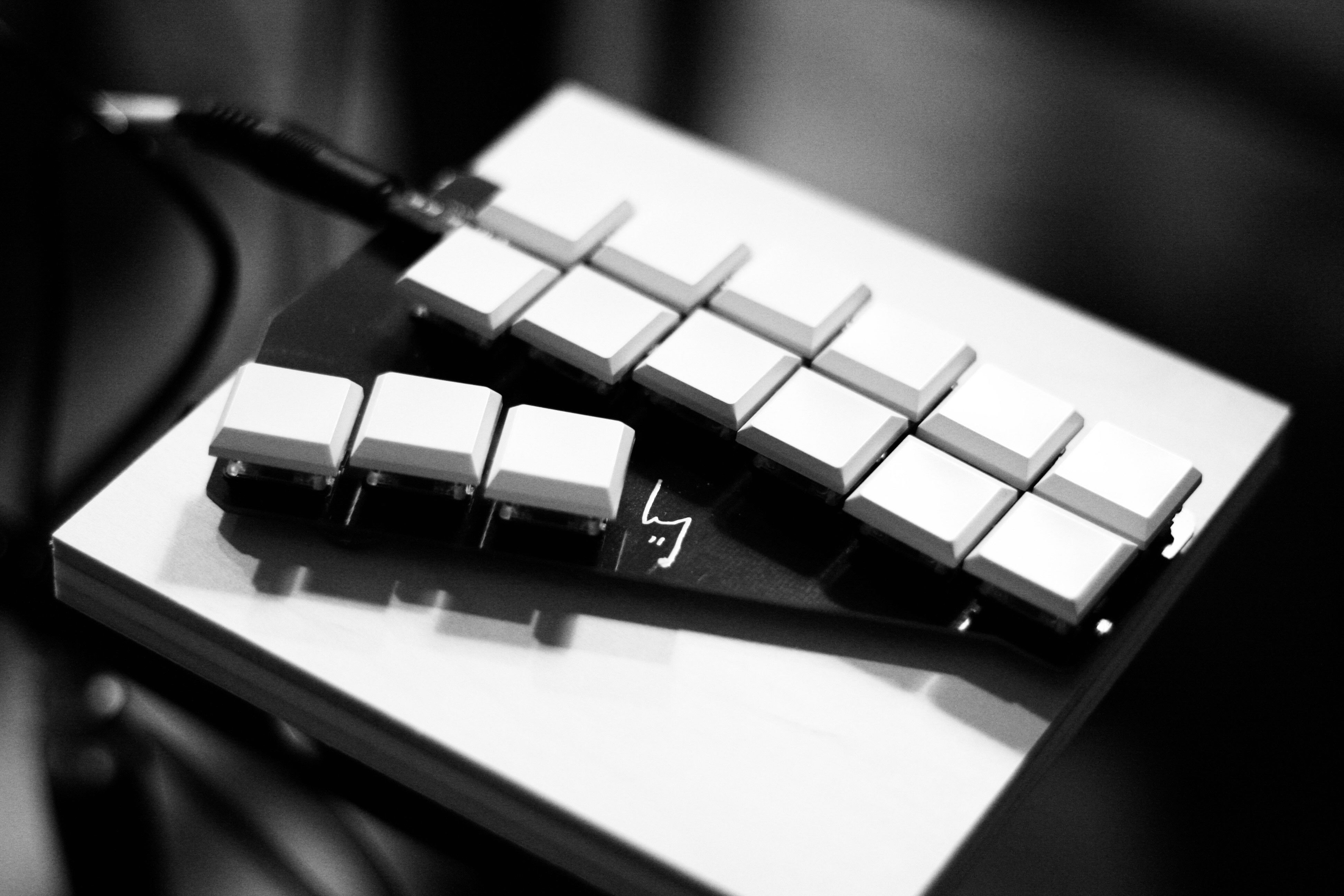In Oregon, Stenography Is a Social Justice Issue

Georgi stenography keyboard in use at Coava
Image: Courtesy Jim Ladd
Editor’s Note: This is Part 1 in a series of stories about the work of stenographers. Part 2 focuses on how you can join a stenographer pool.
Early in 2020, in a segment covering President Trump’s impeachment hearings, MSNBC anchor Brian Williams and former U.S. Sen. Claire McCaskill (Mo.) wondered “why in 2020, in this electronic age, they still have a roving stenographer?”
Ryan White, official court reporter at the Portland Federal Courthouse, has an answer: Because transcripts produced without a live reporter can come out sounding like this representative sample from an actual Oregon court transcript: “I object (unintelligible), sir. I don’t think (unintelligible). I understand that the news — the news media (unintelligible).”
How did this happen? In the 1990s, Oregon state courts and magistrate hearings—but not federal courts— began using digital recordings instead of live reporters in order to save money.
When a transcript is unusable or a recording goes missing, if litigants cannot agree on the content of the hearing, that portion of the case must be re-litigated. For example, White knows of a case when a rape victim was forced to re-testify because the record of her original testimony was not properly kept.
What happens at a trial matters beyond the courtroom. Trial verdicts set precedents; they are appealed. Neither one of these is possible unless there is an accurate record of the trial. That record cannot have gaps, and it should not, experts say, be skewed by a transcriber’s accuracy in reproducing the spoken words.
“In my experience,” White says, “the people who are pushing the ‘Record’ button … are often the judge’s staff or clerks. This is just another duty on a long list of duties. It may look like it’s recording, but then afterwards nothing is there. Or they thought they saved it … but somehow files are often missing when you go to look them up.”
Bonita Shumway, another official court reporter at Portland’s Federal Courthouse, says “all it takes is someone shuffling papers or pouring water, and the incidental noise will completely block out whatever is being said—and that, of course, can be the sentencing itself.”
And then there’s the transcription, which has lots of potential pitfalls. It's not clear how Oregon handles transcription of the recordings. The list of accepted transcribers is locked down, hosted on a password-protected intranet. But Shumway's impression is that transcripts are auctioned to the lowest bidder and may be sent overseas. If the transcriber is underpaid and ill-trained, even a clear recording may result in an unclear transcript.
This affects everything from garden-variety petty crime cases to high profile ones, like that of Jeremy Christian, the MAX train murderer now serving a life in prison sentence. Everything, White said, except for crimes on Native American reservations, crimes that cross state lines or that affect interstate commerce, and crimes against the federal government (think tax fraud).
One possible solution is to require live court reporters across the board, in all courts in Oregon (this is what White says the states around us, including California and Washington, do).
Another is to invest heavily in regulating the digital recording and transcription of circuit and magistrate court cases. Both would require legislation, both would be expensive, and neither is straightforward: court reporters are in rising demand and falling supply, and evaluating and then revamping recording practices across the state would be a massive undertaking.
Both options are possible, though, and both have the potential to succeed. Quaverly Rothenberg, a stenographer for the Massachusetts Trial Courts who works exclusively from digital recordings says that, in her state, the recordings typically sound “like a feature film score.”
Massachusetts avoids Oregon’s problems by having a microphone allocated for each person speaking, by instructing clerks to monitor background noise, and by paying someone to monitor the recording feed in real time, so that any problem with the recording is discovered while it can still be remedied. Recording the proceedings rather than having a live reporter present should save money, Rothenberg says, only because the court waits to have the recording transcribed until it is needed for an appeal—not because the recording is done on the cheap, without adequate personnel and resources.
The pandemic’s remote requirements have caused two recording glitches recently. Before that, in the over three thousand hours of audio she has transcribed, Rothenberg had come across only one minute of missing audio, which was caught immediately and reconstructed by the court during the hearing.
But the transcriber remains key, whether it is the live reporter or a remote transcriber. “Testifying while Black,” a recent study published in Language by Taylor Jones, Jessica Kalbfeld, Ryan Hancock, and Robin Clark, evaluated the accuracy of Philadelphia court reporters in transcribing African American English (AAE), a dialect spoken by half the city’s residents. The study found that while court reporting certifications require 95 percent accuracy, the Philly reporters were only 80 percent accurate on the samples of AAE they were asked to transcribe.
Jones says that the response from the court reporting community was mixed, and drew some angry emails and Twitter flak, but also interest from organizations and individuals who want to use the study’s findings in order to improve their accuracy in recording AAE.
Jones and Kalbfeld are developing a training program to improve comprehension of AAE, which includes counteracting assumptions that “what some Black people speak is just a mix of slang and 'bad English’.”
“Linguistic ideologies matter a great deal here,” Jones says, “and training needs to address both the structure of the language variety and undo unscientific and incorrect indoctrination against different, but valid, ways of speaking.” Human reporters and transcribers, he thinks, are still absolutely the way to go. “I strongly believe that human court reporters, who hold scientifically informed views about dialect variation, and who have the necessary training to recognize and correctly transcribe a wide variety of speaking styles, are far better for our justice system than any AI could ever be.”




